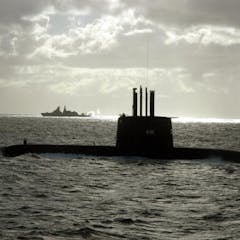
Articles on SANDF
Displaying all articles

South Africa’s defence force has been in decline for some time as its budget has shrunk while its duties have changed.

The new intervention force must be sizeable, and have proper air cover as well as transport and air elements. None are guaranteed.

South Africa is a large peninsula on the strategic Cape sea route. Some 90% of its trade flows through its harbours. The navy defends the country’s sovereignty and national interests.

Tensions between the US and South Africa – this time over the terror alert – are nothing new. Their relations have always had highs and lows since South Africa became a democracy in 1994.

It’s unclear what practical purpose the drafters of South Africa’s foreign policy document envisaged it serving, and who its intended audience is.

The hybrid nature of threats to South Africa’s energy infrastructure can only be solved by an integrated solution, including severe sanctions that should include fines and imprisonment.

The declining defence budget has eroded the operating and capital expenditure of the military, leaving insufficient funds for the replacement of equipment, maintenance, and infrastructure.

The army may help create a more stable and secure environment in the short term, but this is unlikely to result in sustainable and lasting peace.

Besides the misalignment of its resources, design, equipment and its additional roles, the military has also been hobbled by misappropriation of funds.

Should South Africa’s military get involved, it would be venturing into a highly violent and complex landscape, requiring a counter-terrorism type of operations.

South Africa’s post-apartheid leaders have failed to properly prepare the military for secondary roles such as peacekeeping, let alone to a fight a virus.

The court says people need to be able to trust the government to abide by the rule of law, make rational regulations, and not intrude on the rights of those subject to the law.

Ramaphosa’s call for a new social compact will fall on deaf ears unless there are some fundamental changes to the way in which the pandemic is being managed.

The biggest problem with using the military to fight rime is that soldiers are not trained for law enforcement, but warfare, using maximum force.

South African soldiers reported that environmental education and training programmes instilled environmentally friendly behaviour in them.

One of the problems bedevilling South Africa’s army is being compelled to be everything to everybody. Its strategic direction is compromised by generals who pander to the whims of politicians.

South Africa’s army is in a dire situation because the government hasn’t provided sufficient funding over the past two decades, hampering its ability to fulfil its duty.

The South African military’s capabilities for socio-economic development are questionable, even in its own country. The force is in critical decline, but is expected to aid humanitarian efforts.
